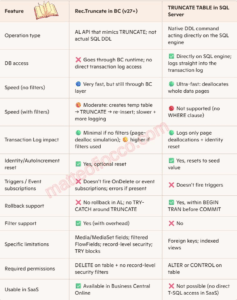Business Central Universal Code Initiative: A Step Towards Unified Customization

Microsoft’s Business Central Universal Code Initiative represents a significant shift in how customizations and extensions are developed for the Dynamics 365 Business Central platform. This initiative aims to streamline and modernize the customization process, ensuring consistency, efficiency, and future-proofing for businesses leveraging this robust ERP system (it has replaced the previous Registered Solution Program (RSP) and Certified for Microsoft Dynamics (CfMD) programs).
Objectives and Advantages
The Universal Code Initiative seeks to address these issues by establishing a more standardized approach.
The primary objectives of this initiative include:
- Standardization: Creating a consistent framework for all customizations, which simplifies maintenance and enhances compatibility.
- Efficiency: Reducing the complexity and cost associated with updates and upgrades.
- Future-Proofing: Ensuring that customizations are sustainable and compatible with future versions of Business Central.
The Advantages are :
- Code can be deployed anywhere (online, PTE, OnPrem, hosted environments, etc.).
- Developers and publishers are encouraged to leverage cloud services, benefiting customers.
Key Features of the Universal Code Initiative
- AL Language and Extensions: Central to the initiative is the exclusive use of the AL language for extensions. AL, a modern programming language tailored for Business Central, promotes the development of apps and customizations as separate extensions rather than altering the base code. This approach ensures that customizations do not interfere with the core system, making upgrades smoother and less disruptive.
- AppSource and Per-Tenant Extensions (PTEs): The initiative encourages the use of AppSource for distributing extensions, promoting a marketplace of vetted and reliable solutions. For unique business needs, per-tenant extensions provide tailored solutions without compromising the integrity of the base system.
- Telemetry and Monitoring: Enhanced telemetry capabilities allow developers and administrators to monitor the performance and usage of extensions. This transparency aids in identifying and resolving issues proactively, ensuring a more stable environment.
- Compatibility and Upgrades: By adhering to the Universal Code standards, businesses can ensure that their customizations are compatible with future releases of Business Central. This compatibility reduces the risk and cost associated with major version upgrades.
Fees (if you’re no compliant)
The impact involves a fee schedule increase per user:

This fee is charged per full user. Consequently, the more users a company has, the higher the cost to maintain legacy code. For instance, a large organization with a 100-user license might end up paying over $40,000 annually within three years just to continue using outdated code.
While the Universal Code Initiative offers numerous benefits, its implementation may pose challenges, particularly for businesses with extensive legacy customizations. Transitioning to the new model requires careful planning, resource allocation, and possibly retraining of development teams. However, the long-term benefits far outweigh the initial investment, making it a worthwhile endeavor for future-ready businesses.
The Business Central Universal Code Initiative marks a pivotal move towards a more standardized, efficient, and future-proof ERP ecosystem. By embracing this initiative, businesses can enjoy a more streamlined and secure environment, paving the way for sustained growth and innovation. As the digital landscape evolves, Microsoft’s commitment to modernization and standardization through initiatives like this will undoubtedly keep Business Central at the forefront of enterprise resource planning solutions.




